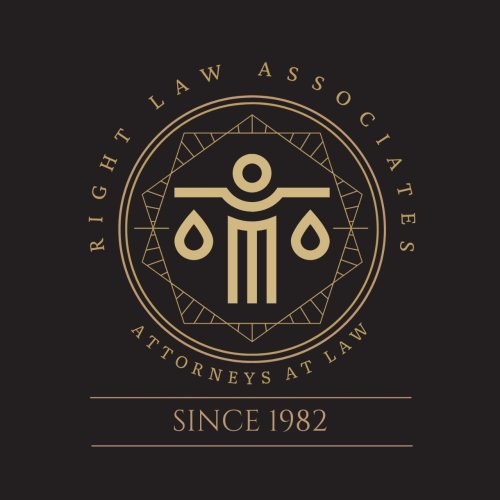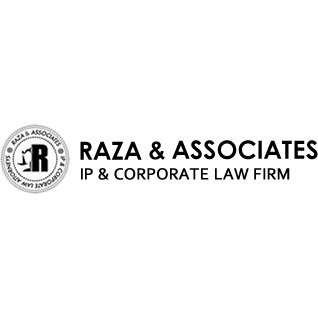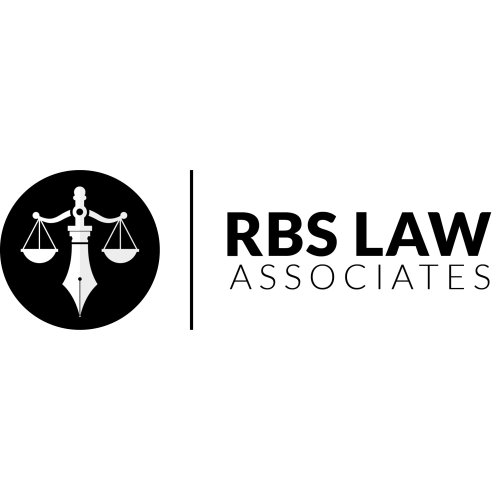Best New Business Formation Lawyers in Pakistan
Share your needs with us, get contacted by law firms.
Free. Takes 2 min.
Or refine your search by selecting a city:
List of the best lawyers in Pakistan
About New Business Formation Law in Pakistan
New Business Formation in Pakistan involves several legal formalities and regulatory requirements. The process is governed by both federal and provincial laws, and is overseen by various authorities including the Securities and Exchange Commission of Pakistan (SECP). The law aims to ensure that businesses are established in a manner that is both legally compliant and conducive to economic growth. Whether you are forming a sole proprietorship, partnership, or a corporation, adhering to the legal requirements is crucial for legitimizing your business and availing of official benefits.
Why You May Need a Lawyer
Engaging with a lawyer during the process of establishing a new business in Pakistan can be immensely beneficial for several reasons:
- Complex Regulations: The legal landscape can be intricate, with varying requirements for different forms of business entities.
- Document Preparation: Accurately preparing and filing essential documentation such as Memorandum of Association or Articles of Association.
- Compliance Guidance: Ensuring that your business complies with local, state, and federal regulations and tax obligations.
- Intellectual Property: Protecting your business’s intellectual property assets through proper legal channels.
- Contracts and Agreements: Drafting and reviewing business contracts and agreements to safeguard your interests.
Local Laws Overview
Several key aspects of local laws are particularly relevant to new business formation in Pakistan:
- Companies Act, 2017: Governs the registration and regulation of companies.
- Partnership Act, 1932: Outlines the regulations for forming partnerships.
- Sole Proprietorship: Registration typically involves fewer formalities but must comply with local trade regulations.
- Taxation Laws: Includes income tax, sales tax, and other relevant tax obligations imposed by the Federal Board of Revenue (FBR).
- Labour Laws: Impacting hiring practices and employee rights.
Frequently Asked Questions
What are the initial steps for registering a new business in Pakistan?
Starting a new business requires choosing a business structure (e.g., sole proprietorship, partnership, or a limited company), selecting a business name, and registering with the relevant authorities such as the SECP or local trade authorities.
Do I need a digital signature for registering a company in Pakistan?
Yes, a digital signature is often required for company registration with the SECP for submitting online documents.
Are foreign entities allowed to invest in Pakistani businesses?
Yes, foreign entities can invest in Pakistani businesses, subject to compliance with investment policies and procedures set by the government and the Board of Investment.
What is the process for obtaining a National Tax Number (NTN)?
Businesses need to apply for an NTN with the Federal Board of Revenue, either directly or through e-enrollment on the FBR's website.
Is it necessary to open a corporate bank account for my business?
Yes, it's strategic to open a corporate bank account registered under the business name to handle financial transactions and maintain financial transparency.
What are the liabilities in different business structures?
Liabilities vary; sole proprietorships and partnerships generally entail personal liability, whereas corporations offer limited liability protection for their shareholders.
Can I change the business structure later?
Yes, businesses can transition from one structure to another, such as from a sole proprietorship to a limited company, subject to fulfilling legal requirements.
What filings are required annually for companies?
Companies need to submit annual returns, tax filings to the FBR, and other compliance-related documents annually.
How can I protect my business's intellectual property?
Registering trademarks, copyrights, or patents can protect your intellectual property, usually requiring legal assistance to navigate the application process.
Can I register my business online?
Yes, with technological advancements, certain business registration processes can be started online, especially with bodies like SECP.
Additional Resources
Consider these resources for more information and assistance on new business formation in Pakistan:
- Securities and Exchange Commission of Pakistan (SECP): Primary regulatory authority for companies.
- Federal Board of Revenue (FBR): For tax-related inquiries and registrations.
- Board of Investment (BOI): Offers guidance for foreign investments.
- Chambers of Commerce and Industry: Provides networking opportunities and advice.
- Online Portals: SECP's e-services for company registration and filing.
Next Steps
If you find yourself needing legal assistance in forming a new business in Pakistan, consider the following steps:
- Research Legal Services: Look for reputable legal firms or consultants specializing in business law.
- Initial Consultation: Schedule a consultation to discuss your business needs and understand the legal requirements.
- Clearly Define Objectives: Ensure you have a clear understanding of your business goals which can guide your legal advisor.
- Documentation: Keep all necessary documentation and information ready for your meetings.
- Follow-Up: Stay engaged with your legal advisor to ensure all procedures are correctly followed.
Lawzana helps you find the best lawyers and law firms in Pakistan through a curated and pre-screened list of qualified legal professionals. Our platform offers rankings and detailed profiles of attorneys and law firms, allowing you to compare based on practice areas, including New Business Formation, experience, and client feedback.
Each profile includes a description of the firm's areas of practice, client reviews, team members and partners, year of establishment, spoken languages, office locations, contact information, social media presence, and any published articles or resources. Most firms on our platform speak English and are experienced in both local and international legal matters.
Get a quote from top-rated law firms in Pakistan — quickly, securely, and without unnecessary hassle.
Disclaimer:
The information provided on this page is for general informational purposes only and does not constitute legal advice. While we strive to ensure the accuracy and relevance of the content, legal information may change over time, and interpretations of the law can vary. You should always consult with a qualified legal professional for advice specific to your situation.
We disclaim all liability for actions taken or not taken based on the content of this page. If you believe any information is incorrect or outdated, please contact us, and we will review and update it where appropriate.
Browse new business formation law firms by city in Pakistan
Refine your search by selecting a city.

















